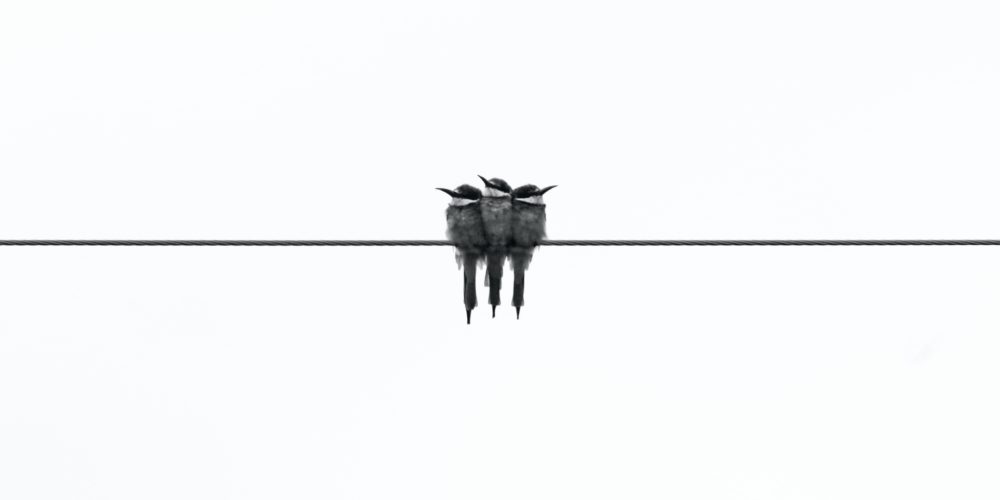Less is more. A life lesson

Less is more, good people. Less is more.
If you’re about to give a long speech, cut it in half. If you are presenting a slide deck, reduce it to a third of what you planned. And cut away all the superfluous text on every slide as well.
Why? Because when you overdo it, it’s counterproductive. No one listens to your whole speech; no one in the world is interested in your 50-slide deck, except as a reference resource. If you drone on, they zone out. That’s why.
I did not know this early in my life. School teaches you to be comprehensive, after all. You lose marks in your exams if you leave things out. More is more, in that world.
And so we come into working life, trying to be thorough and aiming for completeness. It takes us a while to realise that unless we are working in academia or research, no one gives us marks for doing and showing more. Quite the opposite: we face a penalty for doing too much – the penalty of losing our impact.
Most people are terrible readers and listeners. Most people are chronically distracted. Most people are not paying attention, even when they look like they are. That’s the reality out there. If you want to make your impact on their attention and behaviour, you have to do the work – and that work entails knowing how to do more with less.
I was guilty of the mistake of overdoing. I overwrote things, wanting to look erudite. I over-complicated things, wanting to seem clever. I went for thoroughness over precision, volume over quality, heft over impact. Until enlightenment hit, like a flash of lightning.
If you want to make a real difference, do less.
Before you write that big speech, ask yourself: what do you want to happen? Is it to display your knowledge and oratory? Or is it to make an impact in your audience’s lives? If it’s the latter, don’t over-egg the pudding. Work backwards. Which few messages do you want listeners to remember later? Remember there can only be a handful of memorable lessons. Zoom in on just those things, and talk just about them. Liven up those key points, bring them down to earth, personalize them, by all means. But don’t add more and more. Subtract.
This goes beyond speeches and presentations. If you’re setting a strategy, reduce it to its most essential points, so that people can comprehend it and apply it. No one will ever execute your insanely thorough strategy with its seven themes, eight pillars and sixteen critical projects.
If you’re trying to set organizational values, stop trying to be like everyone out there and adding in every possible virtue you can think of. Twenty-four habits and behaviours that every employee must epitomize, really? Only in cloud-cuckoo land.
In personal lives too, less is more. We eventually figure out that we can’t instil every possible virtue and habit in our children; we can’t have a lecture and sermon ready for every possible childhood issue. We learn to let go and focus on what really matters to us as parents, and allow more of the child to come to the forefront.
Fewer friendships mean real friendships. Fewer appearances have greater impact. Fewer conversations leave time for deeper thoughts. Fewer social-media messages make you work harder to craft more meaningful ones. When you follow fewer people, you follow those who deserve your followership.
The magic is this: less becomes more. We focus more, and so we achieve more. We help more lives and grow better economies by being more circumspect in our efforts. We build better businesses by choosing the fields of play more carefully, and then being excellent in our play. Most of our outputs in this life benefit from greater focus and deeper impact.
Less of you is also more, at some point in your life. The young person adds – skills, experiences, and relationships. The wiser older person subtracts – unnecessary encounters, frivolous conversations, outdated habits.
We all leave this life eventually – there are no exceptions. We all age and have to let go of so much – no choice there. So there comes a time when it is wise to be less in this world – less active, less visible, less opinionated, less argumentative. Those reductions are actually enhancements, because they allow us to concentrate our dwindling resources on what matters; and they free up space for thoughts and activities of greater spiritual and philosophical resonance.
In the end, less of us is more. We must grow to become coaches, not players; guides, not travellers; observers, not practitioners. We must become less, so that others can become more.
(Sunday Nation, 25 July 2021)

Buy Sunny Bindra's new book
The X in CX
here »
Popular Posts
- Where are you rushing to—your funeral?June 29, 2025
- How to spot a real thinkerJune 15, 2025
- The pause that saves usJune 8, 2025
- Built the app, forgot the flowJune 22, 2025
- The map will appear—once you start walking.July 6, 2025















